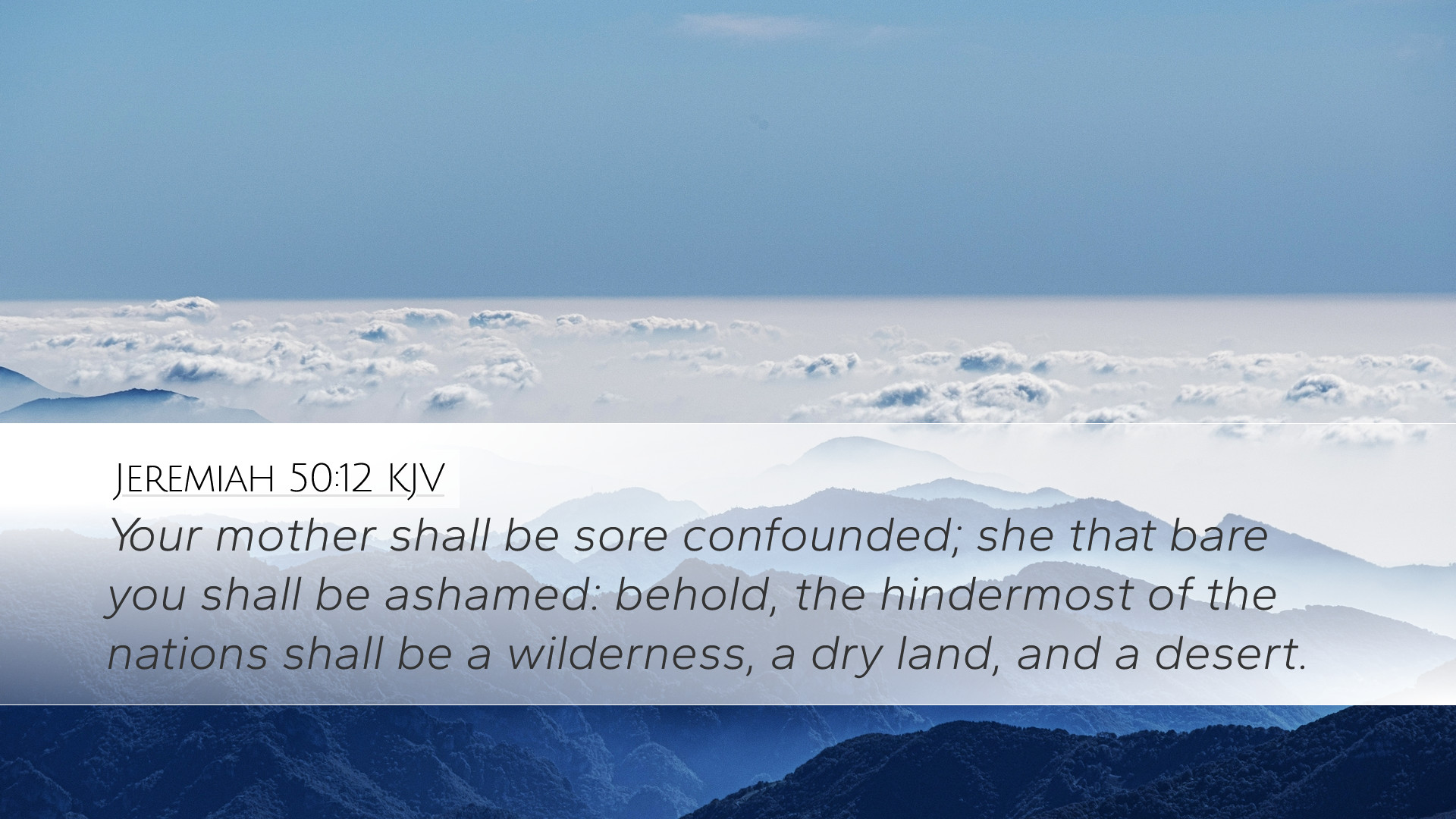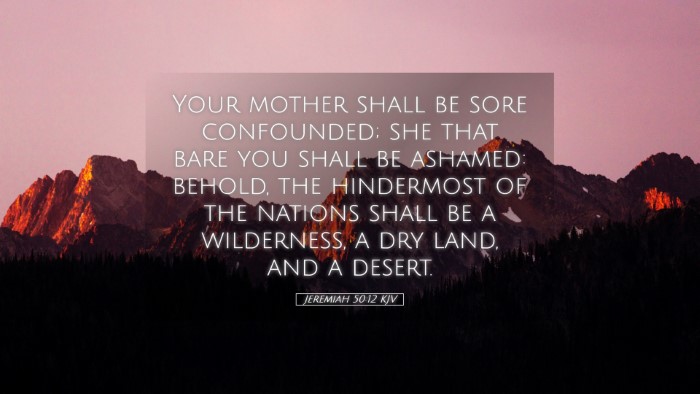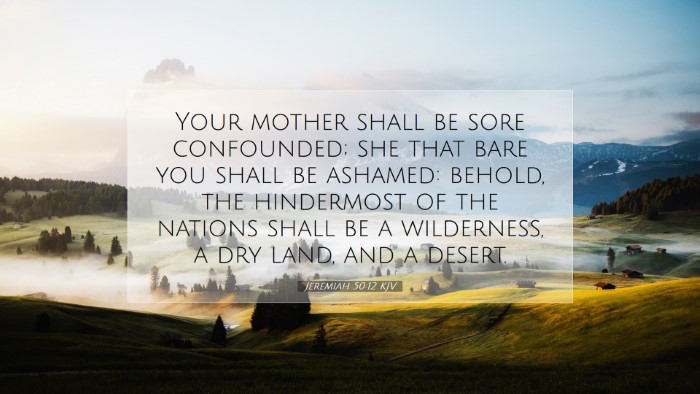Commentary on Jeremiah 50:12
Verse: "Your mother shall be sore confounded; she that bare you shall be ashamed: behold, the hindermost of the nations shall be a wilderness, a dry land, and a desert."
Introduction
The prophecy found in Jeremiah 50 focuses on the impending judgment against Babylon, symbolizing not only the literal conquest of the Babylonian Empire but serving as a typology for divine retribution against all who oppose God’s will. This verse employs vivid imagery and personification, emphasizing the consequences of Babylon's pride and iniquity.
Contextual Background
The historical backdrop of Jeremiah's prophecies is crucial for understanding this verse. Babylon, at the time of this prophecy, was a dominant power known for its luxury, idolatry, and oppression of Israel. Jeremiah’s prophetic warnings are a call for repentance while simultaneously announcing judgment upon Babylon.
Commentary Insights
-
Matthew Henry's Commentary
Henry emphasizes that "your mother" refers to Babylon, the metaphorical mother of her inhabitants and nations influenced by her wickedness. The shame she faces is indicative of her impending destruction, reflecting the gravity of God’s righteous judgment against sin. Henry notes how this symbolizes the downfall of prideful nations and their eventual realization of God's sovereignty.
-
Albert Barnes' Commentary
Barnes elaborates on the "sore confounded" aspect, indicating a deep sense of humiliation and despair that will engulf Babylon. He connects the reference to "the hindermost of the nations" to a prophetic symbolism that portrays Babylon's fall from power and status, reducing it from the pinnacle of strength to desolation. This serves as a moral lesson of the transient nature of human achievements against divine decree.
-
Adam Clarke's Commentary
Clarke provides a detailed analysis of the metaphors used in this verse. He discusses the imagery of wilderness and desert, denoting complete desolation. Clarke remarks on how Babylon's mother—representing its origins and foundational culture—will face bewilderment for having raised a nation turned to idolatry and injustice. He underscores the notion of shame not just as personal but collective, and how it reflects the universal law of divine justice where nations face consequences for their actions.
Theological Implications
This verse highlights several theological themes relevant for contemporary interpretation:
- Divine Sovereignty: The ultimate control God has over nations, raising and lowering them according to His purpose.
- Moral Order: The judgment against Babylon reinforces the biblical principle that nations are accountable for their moral and ethical choices.
- Hope and Restoration: While judgment is pronounced, there remains an underlying hope for restoration for those who turn back to God, indicative of a larger narrative of redemption throughout Scripture.
- Shame and Humility: The shame described is a call to humility for all nations that pursue pride and idolatry, serving as a warning against spiritual complacency.
Practical Applications
This verse has profound implications for pastors, students, and theologians in various aspects:
- Preaching and Teaching: Emphasizing the importance of humility before God and the need for repentance among congregations.
- Personal Reflection: Encouraging individuals and communities to assess their ways and to seek God’s guidance diligently.
- Cultural Engagement: Addressing the consequences of a culture that drifts from God, advocating for moral integrity and justice as reflections of biblical truth.
Conclusion
Jeremiah 50:12 serves as a powerful declaration of God’s judgment against sin and pride, exemplified through the downfall of Babylon. Its rich imagery carries messages through time that are relevant in today's context. As such, it beckons believers to live in light of God’s justice and mercy, ensuring that they navigate their faith and actions in alignment with divine principles.


